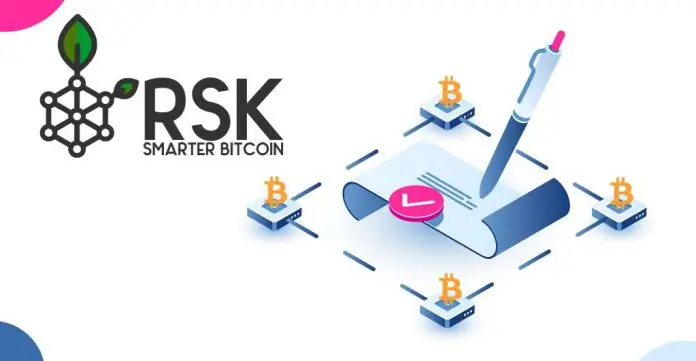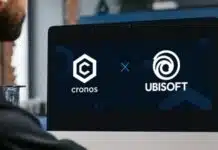
RSK or the Rootstock ecosystem is a decentralized blockchain network, that is based on the Proof-of-Work (PoW) Consensus that uses Bitcoin as the native cryptocurrency. It is the most robust smart contracts platform that is secured by the Bitcoin blockchain network through sidechain technology. Rootstock is an advanced version of QixCoin, which is another Turing-complete cryptocurrency launched in the year 2013.
The Rootstock blockchain is connected to the Bitcoin network via a 2-way peg. It uses SBTC or the Smart Bitcoins to fuel the internal ecosystem. The users lock up their Bitcoins and they get an equivalent amount of SBTC coins in the side chain. These coins can then be used to deploy or even to interact with Bitcoin smart contracts and dApps that are compatible with the Rootstock blockchain.
Therefore, RSK comprises 4 components which are discussed in points below.
- A decentralized blockchain that supports a distributed ledger, that uses merge-mining PoW Consensus
- A fast synchronization network that supports state sync and light clients.
- A two-way pegged sidechain used for Bitcoin-based exchange, which is yet again based on a Federation secured by custom HSM-modules.
- A Turing-compatible deterministic virtual machine for the execution of smart contracts that can interact with the distributed ledger.
Why Smart Contracts Matter
Smart contracts are extremely powerful tools, and also one of the most indigenous innovations of blockchain, that can create deals between two parties without the need for a third-party intermediary to intervene. Here are some of the reasons why smart contracts matter. Have a look below.
Reduces overhead costs
Smart contracts help in reducing the massive overhead costs through the automated solution that triggers whenever some preconceived criteria are met.
Improves Bitcoin blockchain network
Bitcoin network is often blamed for the slow confirmation process and high transaction fees on the network. Smart contracts enable RSK to overcome these concerns by accounting for scalability. As such with the help of smart contracts, the blockchain network can now process around 400 transactions in a single second. Eventually, there are plans to expand that processing capacity to 2,000 transactions per second by the integration of an innovative system called Lumino, that is expected to compete with the Lightning Network in terms of processing speed.
In fact, perceiving the benefits of smart contracts, RSK is all set to launch an Interoperability bridge between Ethereum and Bitcoin. Interoperability protocols will make it easier for the various projects to operate on different blockchains, be it Bitcoin or Ethereum. Decentralized apps (dapps) will be able to cater to a broader spectrum of users, which in turn leverage the projects towards different blockchains simultaneously.
When any token is transferred by any user, the interoperability bridge of smart contract locks the originals and in turn mints a corresponding number of new tokens on the other chain. Using this interoperability bridge, Ether-based tokens are transformed into RSK’s or the RRC20 tokens, which can again be transformed into Ethereum ERC777 tokens.
Why Slush Pool merge mines RSK
Using the same proof of work (PoW) for simultaneously mining blocks on multiple blockchains, is called merge mining. In simpler terms, this process of merged mining allows miners to earn extra rewards in multiple cryptocurrencies without even spending anything extra on different mining hardware or even spending more on electricity.
With the help of merge mining, Bitcoin will have the Ethereum-like smart contract platform that will be built on a more secure and scalable way. This will, in turn, add value and momentum to the Bitcoin ecosystem. In fact, it will make the Bitcoin network better. That is why merge mining makes it worth supporting.
Does RSK Threaten Ethereum’s Smart Contract Hegemony?
Ethereum, with its default smart contract and tokenization protocols, has become quite popular as a cryptocurrency. As a result, many startup companies that are interested in capitalizing on the blockchain’s momentum began showing interest in the Ethereum platform. But then, Ethereum’s smart contracts are very vulnerable, with the Ethereum chain facing serious issues owing to the processing power that are associated with applications hosted on its chain. This is where RSK wins the challenge. RSK operates on a sidechain, so it does not sap processing power from its main chain, unlike the Ethereum platform.
Besides, Bitcoin and Ethereum, other blockchain platforms are also challenging their dominance, by pointing out the follies of Bitcoin and Ethereum. Smart contract platforms like EOS and NEO are also challenging Ethereum. NEO, in fact, offers better smart contracts compared to Ethereum.


